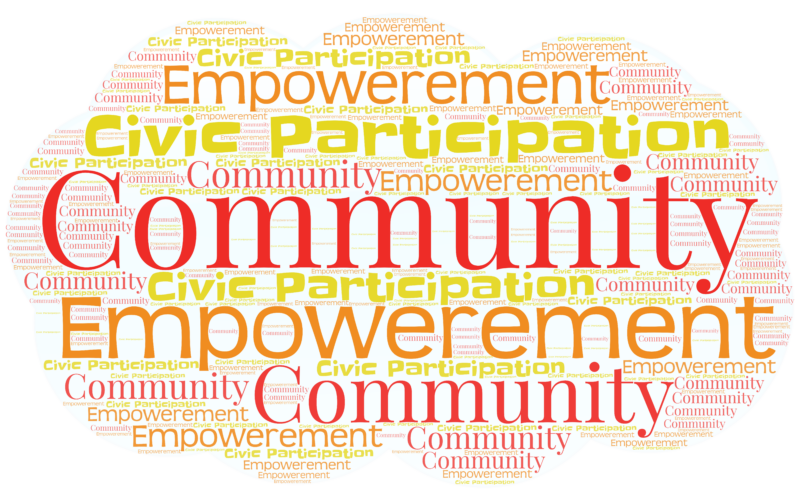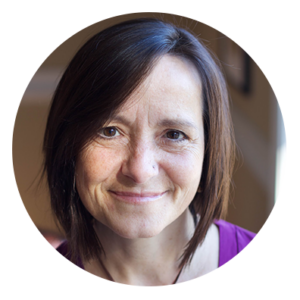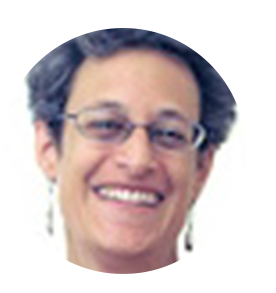Creating a Festival of Cultures to Empower and Celebrate Adult Learners in Your Community

by Beverly Ingram and Debbie Tuler
Every May, the Thomas Jefferson Adult Career Education program at Piedmont Virginia Community College (TJACE@PVCC) in Region 10 hosts a Festival of Cultures that empowers and celebrates the diverse backgrounds of our ESL and GED® students. The festival grew over 14 years before the COVID-19 pandemic to be a large community-wide event. During the pandemic lockdown, the festival went virtual but returned this past spring as a mini, in-person event for friends and family of TJACE students and staff, with an attendance of around 200 people. Here we describe this latest version.
Festival of Cultures 2022: Visualize walking up to your school one Sunday afternoon. A tent and tables line the entrance. One of your local Afghan families displays oriental carpets, some students play musical instruments, and a student is painting traditional henna designs— students and their families line the walkway with posters and exhibits they have worked on in class, showing traditional costumes and items from their countries. Everyone appears happy and confident. Students are proud of their posters, and it shows in their stance and in the joy on their faces. They are speaking in English or pointing to pictures if their language is more limited. The students are teaching those around them about their countries, and as we know, teaching is the highest form of learning. Students and guests interact with each other in positive, friendly ways. Inside, several students have taken charge of the potluck room, telling those arriving with food where to set up. Each food item is labeled with a name and key ingredients, so people know what meets their dietary restrictions. The buffet line is out the door but it does not matter as everyone in line is thrilled to socialize along the way. This is community.
At 3 p.m., an announcement is made to meet under the tent for the talent show. A Congolese man performs a singsong, an Argentinian couple perform a tango, a Venezualan plays guitar, an Afghan dances, and a Mexican girl sings from her heart. Some signed up in advance to perform while others were inspired to do so on the spot. Students are given responsibility and choice in how to express themselves, both with exhibits and performances, and it is emotional. Deep learning comes through this type of experiential, meaningful, and project-based activity.
Travelers get their “passports” stamped as they visit exhibits and once they have 15 stamps, they can select a free book. Picture dictionaries were popular this year.
The opportunity for students to be leaders is important to integrating and gaining confidence as they acculturate into the United States. Some students have lost this role that they had before while others would never have been in a situation to lead or perform due to their gender or socio-economic status. Yet when a safe space is created, they shine—and this small experience will spiral into all areas of their life and work. This is civic participation.
Our Process: So how do we get there? Six to eight weeks before, event organizers visit each classroom with a slideshow heavy on visual examples, creating excitement about an upcoming event—through planning and organizing, students learn. There is a lot of talk about food, traditional clothing and crafts, and forming groups to work together—student leaders naturally emerge from this process. The organizers and teachers explicitly put as many parts of this event into the hands of the students, creating an atmosphere of excitement, ownership, and shared goals. Teachers guide or facilitate the development of group or individual posters, slideshows, videos, or other projects while incorporating level-appropriate writing and speaking activities. Topics may include a general country overview, food, dance, crafts, games, history, or personal story. Projects provide multiple levels and choices of learning styles for students to explore in a safe and low-stakes atmosphere. Hands-on group learning opportunities abound. Students are motivated by a desire to present their best. This is empowerment.
Teachers volunteer to run a kids crafts table, the welcome table, and book distribution. The local library brings the book mobile and helps students get library cards. Several local organizations that work with our students have information tables.
You may think of other ways that your students, staff, and community partners can participate in planning and hosting an event.
Conclusion: Our focus from the beginning was on amplifying student voices, facilitating their participation and integration in the community, and demonstrating to the community what our students bring. It has always been about celebrating diversity and it is a Festival of Cultures because we all—whether native-born or immigrant—have culture. This year’s mini-festival (or glorified potluck) felt like a return to our beginning, with students at the heart. As a teacher, it is a joy to engage students in creating culture posters or exhibits—incorporating oral communication, writing, reading, art, math, and even science and social studies—to present and share with a real audience that goes beyond classroom walls.
For more information on project-based learning which can inspire you to develop your own region’s Festival of Cultures, take a look at “What is PBL?” from PBL Works.
 Beverly Ingram is the Festival of Cultures Coordinator and has been teaching English language learners ages 5–75 for more than 20 years in four countries. She is honored to be working with and learning from our international community members. In Virginia, she presently teaches TJACE Adult Education programs, PVCC Writing Composition for EL’s, and provides language coaching for UVA Darden Business School students and UVA medical doctors. Beverly has a B.A. in international relations from The American University in Paris, masters level coursework in second language acquisition and teaching, a Virginia teaching license with an ESOL endorsement, TEFL certification, and is an academic and personal growth coach.
Beverly Ingram is the Festival of Cultures Coordinator and has been teaching English language learners ages 5–75 for more than 20 years in four countries. She is honored to be working with and learning from our international community members. In Virginia, she presently teaches TJACE Adult Education programs, PVCC Writing Composition for EL’s, and provides language coaching for UVA Darden Business School students and UVA medical doctors. Beverly has a B.A. in international relations from The American University in Paris, masters level coursework in second language acquisition and teaching, a Virginia teaching license with an ESOL endorsement, TEFL certification, and is an academic and personal growth coach.
 Debbie Tuler has worked in adult ESL for more than 30 years in multiple roles including teacher, curriculum developer, instructional coach, and program coordinator. Currently, she is the ESL Specialist in Region 10. She founded the Charlottesville Festival of Cultures in 2004 with another colleague and a student committee.
Debbie Tuler has worked in adult ESL for more than 30 years in multiple roles including teacher, curriculum developer, instructional coach, and program coordinator. Currently, she is the ESL Specialist in Region 10. She founded the Charlottesville Festival of Cultures in 2004 with another colleague and a student committee.